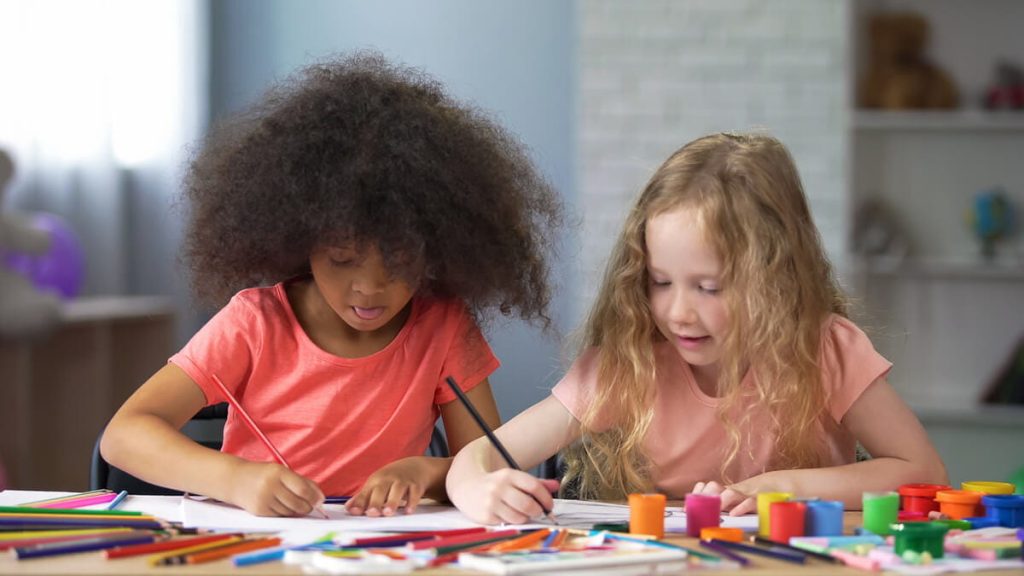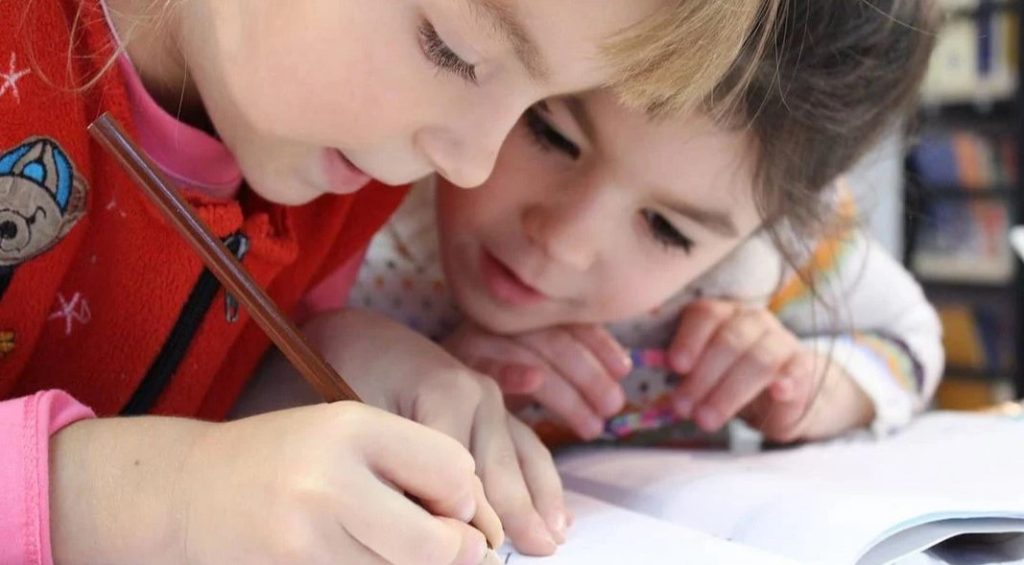Early childhood education, as defined by the early childhood education definition, involves the teaching and nurturing of children from birth to about eight years old. This pivotal stage in human development is dedicated to laying a robust foundation for lifelong learning and overall well-being. It encompasses a variety of teaching methods tailored to enhance the young child’s cognitive, social, and emotional growth. The importance of early education cannot be understated—it prepares children not only for the academic challenges of future schooling but also instills essential social competencies and emotional resilience. In this article, we will explore what early education entails, its fundamental importance, and the impact it has on a child’s developmental trajectory. We aim to provide a comprehensive understanding of early childhood education’s goals, benefits, and key components, offering insights for educators, parents, and policymakers alike.
What is Early Education?
What is early education and what’s early childhood education are questions at the heart of understanding the first critical stage of formal and informal education systems. Early education, or early childhood education, refers to the structured learning and development that children experience from birth up to approximately eight years old. This phase of education is crucial as it lays the groundwork for all future learning by focusing on the holistic development of a child.
The age range for early childhood education typically starts from infancy, covering toddlers and extends to children in preschool and the early grades of elementary school. During these formative years, children undergo rapid and significant development in multiple domains including physical, cognitive, social, and emotional growth.
Early childhood education takes place in various settings, each designed to cater to the educational needs of this diverse age group. These settings include nurseries, preschools, kindergartens, and primary schools, as well as more informal environments like home daycares or even at home under parental guidance. Each setting offers unique opportunities for learning and development but shares the common goal of fostering essential skills and competencies.
In these educational settings, children learn foundational skills such as numbers and letters, but more importantly, they are introduced to social interactions, emotional self-regulation, and critical thinking through play-based and structured learning activities. Educators in these environments employ a variety of teaching methods tailored to engage young learners at their respective developmental stages, ensuring that the educational experiences are both age-appropriate and engaging.
Understanding what early childhood education entails provides insight into its significant role in shaping a child’s future academic and personal success, establishing a base upon which all later learning will build. This initial stage of education is not just about preparing for the next levels of schooling but is also about nurturing a well-rounded individual capable of thriving in a complex world.

The Significance of Early Childhood Education
Early childhood education fundamentally shapes the early years of a child’s life, a time when crucial brain development occurs. The early childhood education meaning revolves around its strategic focus on fostering an environment where young learners thrive across multiple dimensions—cognitive, social, emotional, and physical.
The primary goals of pre-primary education include preparing children for the transition to formal schooling and cultivating a lifelong love for learning. By introducing children to the basics of literacy and numeracy in an engaging and supportive setting, these programs aim to build a strong academic foundation. Moreover, they are designed to help young children develop critical thinking and problem-solving skills which are vital as they progress through different educational stages.
In addition to cognitive development, pre-school education plays a significant role in the social and emotional development of children. These programs provide early learners with opportunities to interact with peers and learn social norms and behaviors. This socialization is essential for developing interpersonal skills and emotional intelligence, which are crucial for personal and professional success later in life.
The importance of this foundational education also extends to physical development. Many programs incorporate physical activities that help improve motor skills and overall health. These activities are not only fun but are also crucial for developing gross and fine motor skills.
Ultimately, the core objectives of early learning are to ensure that children grow into well-rounded individuals who are curious, capable, and ready to tackle future educational challenges. By providing a supportive, stimulating, and inclusive learning environment, these educational programs lay the groundwork for lifelong learning and development, setting the stage for future academic and life successes. This comprehensive approach highlights why this foundational stage is so critical in shaping the trajectory of young lives.

Key Components of Early Education Programs
Understanding what is early education involves recognizing the essential elements that make up effective early education programs. These components are meticulously designed to align with the developmental stages of young children, ensuring that each child’s growth is supported both cognitively and emotionally.
The curriculum in early education is structured to provide a broad range of activities that promote learning through play, exploration, and structured activities. This includes basic literacy and numeracy skills, but also extends to sensory experiences and motor skills development, crucial for early years.
Teaching methodologies in early education focus on interactive and child-centered approaches. Educators are trained to create dynamic learning environments that encourage children to explore their interests while guiding their learning experiences. Methods such as storytelling, open-ended questions, and hands-on projects are employed to stimulate curiosity and engagement.
The learning environments are another critical component. These are designed to be safe, inclusive, and stimulating, with spaces that are adaptable to various learning activities and conducive to active learning. The environment includes not only the physical setting—such as classrooms, outdoor play areas, and resource centers—but also the emotional atmosphere, where children feel valued, understood, and connected to their peers and teachers.
Exploring the Benefits of Early Childhood Education
Understanding what does early childhood education mean and what is early education reveals its pivotal role in shaping the developmental trajectories of young children. The benefits extend across cognitive, emotional, and social dimensions, profoundly impacting children’s future capabilities.
Cognitive Benefits: Early education programs are instrumental in developing foundational skills such as numeracy and literacy. Research indicates that children who participate in high-quality early education settings display enhanced problem-solving skills and better memory retention. According to a recent study by the National Institute for Early Education Research, preschool attendees were found to have a 34% higher likelihood of achieving academic proficiency in mathematics and reading by age 8 compared to non-attendees.
Emotional Benefits: Emotional resilience is another critical advantage of early childhood education. Structured early learning environments help children develop greater self-awareness and control, which are vital for emotional health. A longitudinal study published in the Early Childhood Research Quarterly highlighted that children exposed to early education were better at managing stress and had lower instances of emotional distress during their elementary years.
Social Benefits: Social competence is significantly enhanced through early childhood education. These programs encourage children to engage in cooperative play and learn conflict resolution skills. The peer interactions that children experience in early education settings lay the groundwork for developing empathy and interpersonal skills. According to statistics from the Department of Education, children who had early education were more likely to engage in extracurricular activities and exhibit positive social behaviors in school.
The scope of what early childhood education means extends far beyond academic preparation; it encompasses fostering a well-rounded developmental foundation that supports cognitive, emotional, and social growth. The integration of these elements prepares children not only for school but for life, making early education a crucial investment in the future of our children.
The Impact of Early Education
Throughout this discussion on what is early education, we have highlighted its crucial role in shaping the holistic development of young children. Early childhood education not only prepares children for future academic challenges but also cultivates essential social and emotional skills that are pivotal for lifelong success. By engaging children in environments that foster curiosity, resilience, and cooperation, early education sets the stage for them to become well-rounded individuals.
Moreover, the benefits of early education extend beyond the classroom; they ripple out to influence various aspects of a child’s personal and academic future. By providing children with a strong start through structured learning and play, early childhood education significantly contributes to their ability to achieve their full potential. As we have seen, investing in the early years is not just beneficial but imperative for nurturing capable, confident, and caring individuals.
Leave a Reply